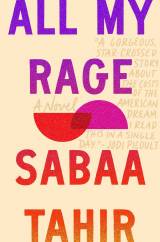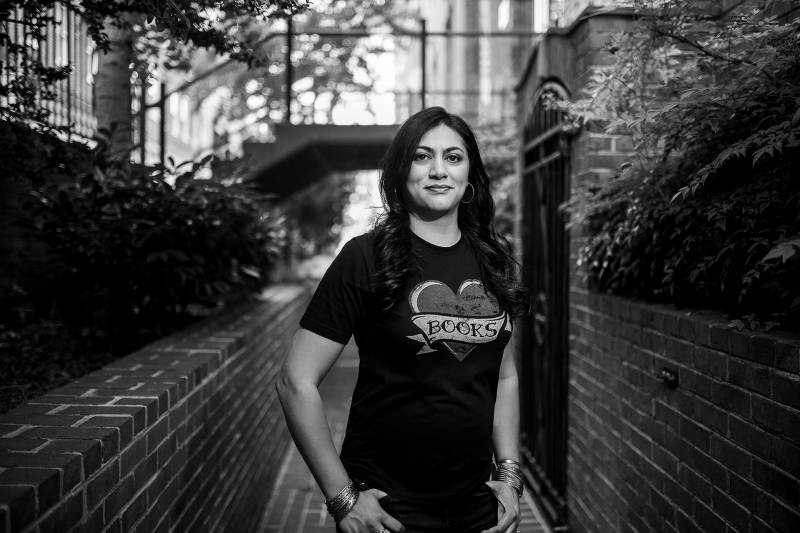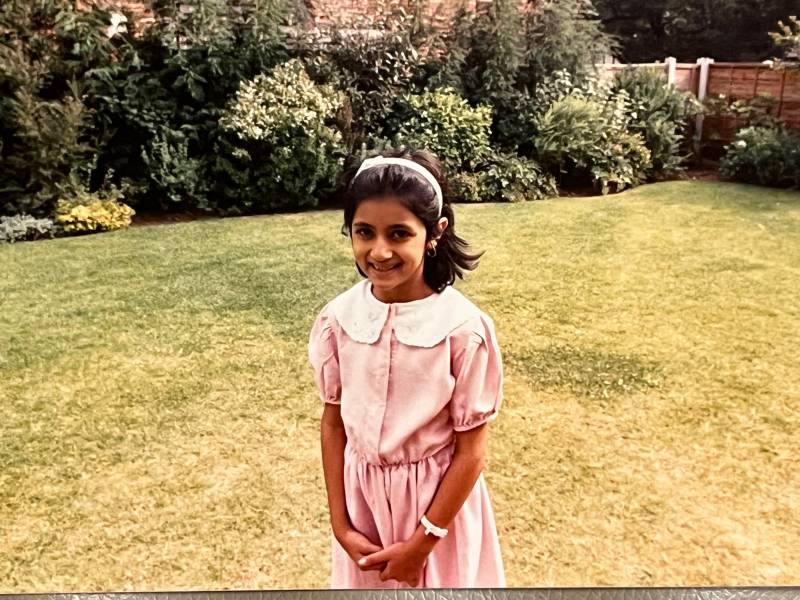I think honesty is really important, showing the messy reality of these kids’ lives, both in the struggle but also in the beauty and in the humor — in allowing for a lack of resolution, or a resolution that is perhaps a little bit more ambiguous. Because the truth is that trauma doesn’t always leave us. We can heal from it. Sometimes we can shed it, but not always. I wanted to portray that realistically for young people because I don’t think young people are always taught how to deal with trauma. And yet young people go through immense amounts of trauma, whether adults want to admit it or not.
On using music to express Noor’s emotions
One of the songs that means so much to Noor is “Bullet with Butterfly Wings” by [The] Smashing Pumpkins. And I think people who know the song will recognize the title of this book. It’s this ’90s anthem and it really encompasses this sense of rage that Noor feels that is buried very deep. Another song that Noor loves is by Masuma Anwar called “Tainu Ghul Gayaan.” Anwar has this really deep voice and this incredible range.
Noor really struggles to express her feelings. When she speaks out loud, she ends up using short sentences, really having a hard time saying what she means. So one of the reasons why she loves Masuma Anwar so much is because this woman puts so much feeling into a single word.
Anna Leone’s song “Once” comes up on Noor’s playlist as Noor and Salahudin are driving together, and they’ve just shared some deep secrets with each other. This is a song that is all about regret and the past:
I close my eyes and lean my head back. The road is smooth beneath the wheels. The window cool against the bruise on my cheek, and Anna Leone sings “Once” about what it means to move on from the past.
“Sometimes, Salahudin,” I say, “it feels like too much. I think about the shit we’ve read in school. Those books all about one problem. A kid who’s bullied. A kid who’s beaten. A kid who’s poor. And I think of us and how we won the shit-luck lottery. We have all the problems.”
“Nazar seh bachau.” He utters Auntie Misbah’s oath against the evil eye so fervently that I laugh.
Famine comes when you lament the flood. I hear Auntie Misbah say in my head. It could always be worse.
“Do you think our adulthoods will make up for everything we had to deal with as kids?” I ask him.
“Like, we get out of here and you go to med school and I become a writer and our lives will be amazing?”
“They don’t have to be amazing. Just not…” My face throbs, “Not this.”
“You’re going to escape this place, Noor.” He looks over at me. “You’re going to become a doctor. Your adulthood is going to make up for all of it.”
On what is bringing her joy right now
I think there’s so much wonderful art being created. There are so many wonderful books out in the world right now. There’s so much fantastic music that’s being created.
I also take great joy from the young people in my own life. I’ve been so amazed by my kids and my nieces and nephews. Their positivity despite everything they’ve gone through in the past two years. How laughter is something that is just a part of their daily, hourly, a part of their life. There are times when I’m stressing over something, and in the background, I will hear my kids just busting up over something ridiculous. And it’s just this wonderful reminder to get out of my head and to put away some of these worries and to just let myself laugh.
That’s also a part of “All My Rage,” that there is so much hope there. There is humor. There is light in this story of some really difficult things, because that is often how we get through the most difficult parts of our life, with humor and friendship and hope.



